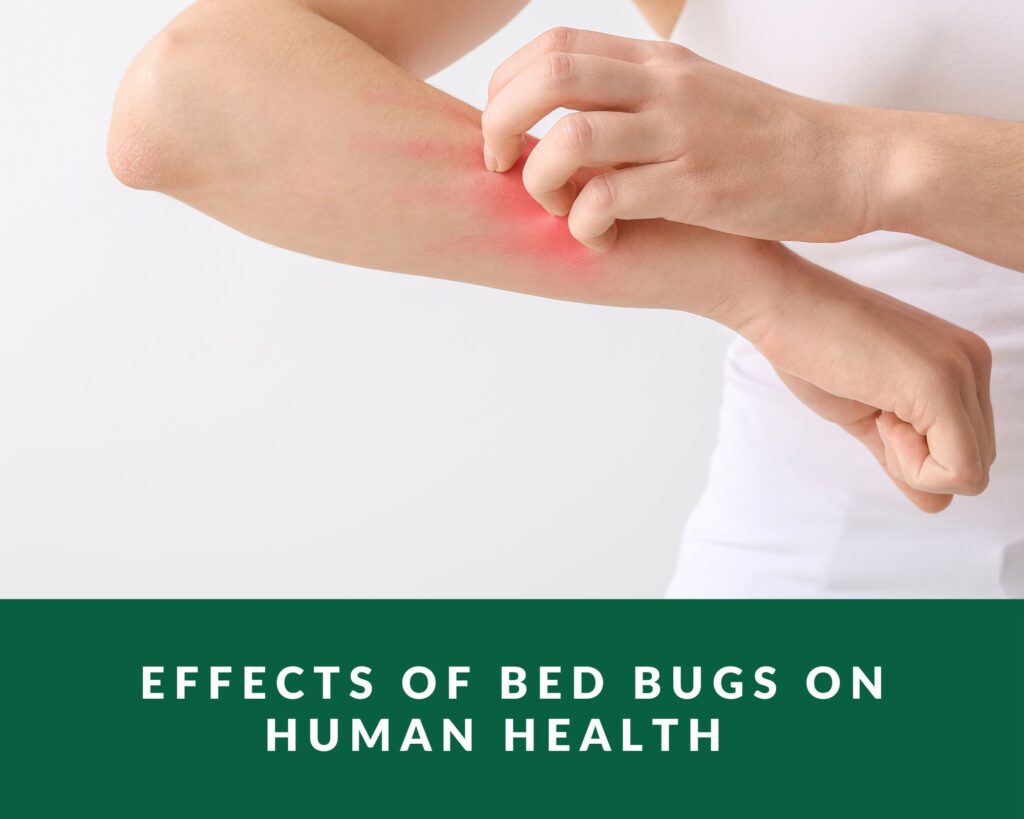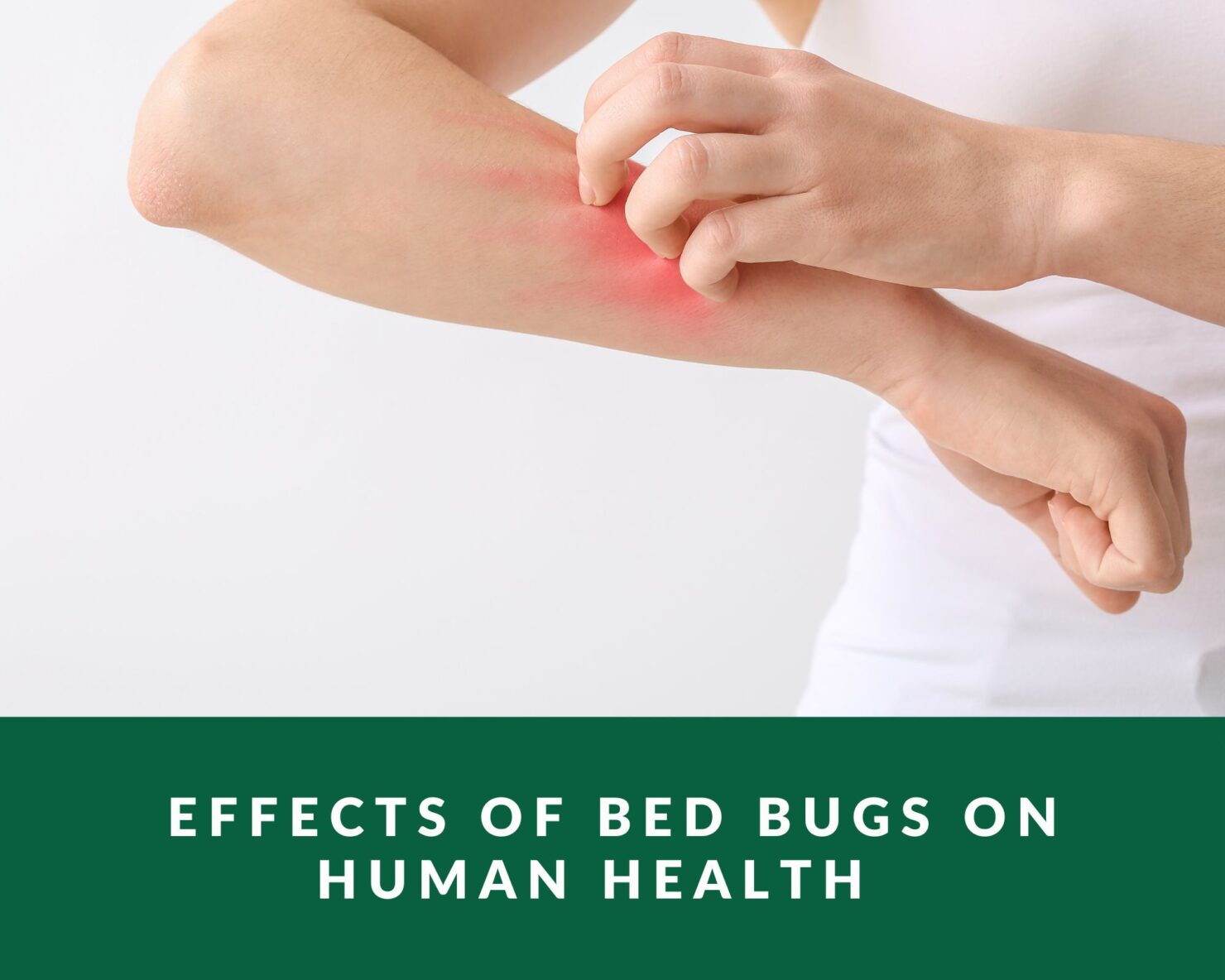
For many people throughout the world, bed bugs can pose a bit of a nightmare, especially if effective bed bug solutions aren’t used. The psychological and physical toll on everyone affected by a bed bug infestation in a house or apartment can be devastating.
We’ve discussed bed bugs and how to deal with infestations in some of our earlier posts. Have you ever considered the serious emotional and psychological impact that bed bugs can inflict on a person? Continue reading to learn more.
Effects of bed bugs on human health
Although bed bugs really haven’t been proven to spread disease, they can have detrimental effects on your physical and mental health as well as your finances. These impacts include, among others:
1. Allergic/skin reaction to bites
The itching that frequently follows bed bug bites is the most prevalent health problem. Bed bug bites can, though seldom occur, cause allergic reactions in certain vulnerable people.
Within a few days of a bed bug attack, many patients develop red bumps or red marks on their skin. Some individuals’ reactions can be delayed for approximately a week or two, and few people don’t even respond.
The bumps or welts resemble mosquito bites in appearance but tend to last considerably longer on the victim, frequently two weeks or longer. The constant itching from these bites makes itching unavoidable. The risk arises after that point.
2. Infection from scratches
Whilst bed bugs are not typically known to distribute any blood-borne illnesses, their bites can be extremely uncomfortable, and if one scratches them, it is very easy for germs to enter the wound.
Since bed bugs typically strike at night, you could unintentionally scratch yourself while you sleep, infecting the bite site. Repeated scratching can also result in a recurrent serious infection or, in rare circumstances, cellulitis.
3. Insomnia
This insufficient sleep may be brought on by a variety of factors. Many persons who have bed bugs in their home have insomnia. Individuals with insomnia have a difficult time falling asleep; they frequently wake up during the course of the night and are unable to fall back asleep; they feel tired and irritable all day long, which has an impact on their efficiency.
4. Sleep deprivation
Going to bed becomes a repulsive, unsettling, even frightful experience when you have bed bugs. It gets more difficult to fall asleep, and over time the effect might accumulate and cause additional issues. This can seriously harm your health when coupled with the insomnia brought on by bug bites.
5. Social deprivation
As a result, those who have been infested with bed bugs are frequently the target of vicious claims that they are “unclean,” “filthy,” and a threat to society. These fabrications have the tendency to lead to far more serious psychological problems, as well as social exclusion and sadness.
However, bed bugs are very apathetic in their housing preferences. Whether you live in a large home or a modest cottage, they do not even mind.
In fact, neither unclean nor clean settings are particularly more conducive to the growth of bed bugs. No matter how thoroughly you clean, bed bugs still need a place to hide.
6. Anemia
Additionally, individuals who reside in areas with heavy infestations may develop anemia due to blood loss brought on by the enormous number of bed bugs that consume blood. Blood is necessary for bed bugs to proliferate and finish their life cycle.
Particularly in starving people, frequent feedings can cause substantial blood loss and ultimately result in anemia.
7. Post-Traumatic Stress Disorder (PTSD)
An extremely traumatic experience might cause PTSD, a panic and anxiety disorder. It usually takes a chronic stressful experience for anyone to acquire this illness, and signs may not appear for years just after trauma. After being stung by bees, or having damage caused by roaches, bed bugs, or spiders, people can get PTSD.
People who suffer from PTSD have sensitivities as an outcome of their trauma that make them recall their horrific experience if they come across a fair quantity of bugs in a secluded area, or go back to the region where they suffered infestation.
Conclusion
Some people might think of bed bugs as yet another urban nuisance, a horrible creature that has infested a house and needs to be exterminated. However, the daily effects of dealing with an infestation can be overpowering and draining for a person.
In an alliance with CDC (Centers for Disease Control and Prevention), EPA formally designated bed bugs a public health hazard and highlighted some of the implications in the statement, according to studies. Owing to this fact, eliminating bed bugs is more than pest control; it also serves to safeguard the general public’s health.

